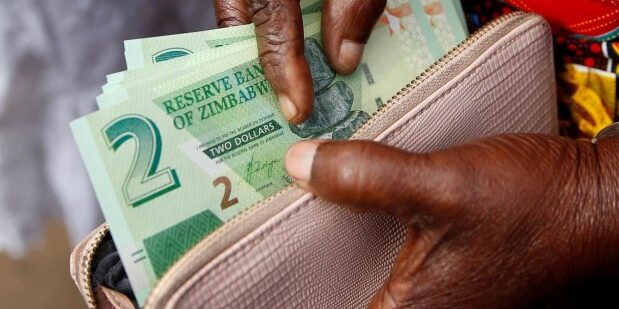Zimbabwe, plunged into a serious economic crisis over the last 20 years, announced last week the adoption of a new currency called “ZiG” Zimbawe Gold (Zimbabwe Gold) and the replacement of the current Zimbabwe Dollar, to try to combat hyperinflation and stabilize the economy from the country.
With inflation officially hovering around 55% after this rate reached triple digits last year, the governor of the Central Bank of Zimbabwe, John Mushayavanhu, announced last Friday the replacement of the Zimbabwe Dollar by the “ZiG”, a measure that aims to promote the country’s financial “simplicity, trust and predictability”, according to this official.
Zimbabwean citizens now have 21 days to exchange the old currency against ZiG, with authorities also announcing a drastic drop in interest rates from 130% to 20%.
In 2008, runaway inflation destroyed savings and brought down Zimbabwe’s economy to the point that the prices of consumer goods were changing several times a day.
The situation reached the point where the country adopted the US Dollar as its official currency for a short period, before quickly returning to the Zimbabwean Dollar in 2019 without however restoring confidence.
Last year, the local currency lost practically 100% of its value in relation to the US Dollar. Therefore, the prices of goods and services continue to be set in US Dollars, with the majority of the population also preferring to be paid in that currency.
The arrival of the new currency does not automatically restore optimism. Although Zimbabwe has significant reserves of gold and other precious metals, experts doubt that they will be sufficient to support the new currency in the event of gold price volatility.
Last February, after a two-week mission in the country, the International Monetary Fund announced that this country, whose majority of 16 million inhabitants live in poverty, would experience a slowdown in its economic growth of around 3.25 % in 2024.
The IMF explained this forecast by the volatility of raw material prices and also by climate change that impacts agricultural production.
Last Wednesday, the President of Zimbabwe declared that the country was in a state of “national catastrophe”, due to the drought, in order to unlock the exceptional resources necessary so that around 2.7 million particularly fragile Zimbabweans do not face situations of food insecurity.
![]()




